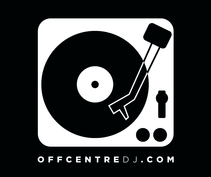|
What do you do to get loose? “Money please, I get loose off of orange juice” Sometimes all it takes is the summer sun to glare through the window at a certain angle and BOOOOM, you’re in the zone. But, what if there’s no sun! What are the challenges of tapping into the creative mind set? Some say inspiration just hits us. Like divine intervention, lighting strikes and the magic comes out. Other producers argue that as long as you’re putting the time and effort in on a regular basis you’ll learn and find the inspiration somewhere in that day to day beat making routine. However we look at, the key here is being able to put yourself in a position to access that part of the brain/heart/soul. So here are a couple of strategies for seasoned or beginner Electronic Music Producers alike that might help you get a little deeper. 1. Ask yourself a simple question. When the lighting does strike, am i ready to harness it? A few simple organizational parameters go a LOOOONG way. On those days that you’re not feeling terribly creative, what can you do besides curling up into the fetal position uncontrollably sobbing, whilst scrolling through Instagram. Well, how about set yourself up for the next time? Every session is connected. The lesson here is to be good to your future producer self! If you’re feeling lame do lame stuff. Reorganizing project files, deleting useless things, finding new drum sounds or synths, rewiring/tweaking your system. These are some examples of things that you can use that uninspired brain for. Now, if your studio gets too clean and too organized that might also be cause for concern! But that's another story. 2. Session goals. Keep it simple. If I’m thinking about laying down some drum patterns, don’t get sucked down the rabbit hole by trying to find the perfect compression settings for your kick. There’s a difference between creation and tweaking. Tweak some other time. If you can focus on one thing at a time, you’re more likely to finish songs. There are so many facets to learning how to be a good producer that if we try to do them all at once one of two things will happen: You’ll get confused, or you’ll go crazy. This goes for both beginner and experienced producers. 3. Time limits. Smart phones have timers. Use them. All the rage in the sports world is interval training. It has merits. I don’t believe that hardcore parameters are necessarily the best thing to promote creativity, but having no time limits or structure can also have adverse effects. Try giving yourself a set amount of time (i.e. 30mins) to accomplish a task. If you’re not done, that’s all good. Like I said earlier all sessions are connected. You’ll jump in where you left off next time. With time limits, most likely you’ll start making better use of your minutes and putting in a more concentrated effort than you would if you had a bottomless pit. ~ Erik Laar
OCDJ - Your Fiddle-beatz project is really a great example of electronics and acoustics mixed. How long did it take for you to write and record? KF - The majority of the melodies were written when I moved to Toronto in the fall of 2015. Over the next couple of years, I used these melodies as a “playground” to explore arranging and beat making in Ableton. The pieces evolved over time, and by 2017, I decided to re-record the acoustic instruments and fully develop the arrangements to form a cohesive album. Overall, it was a slow process, but fulfilling to be able to create freely without a deadline or business agenda. To me, each piece was an emotional outlet, reflecting what was happening in my life at that time. To be able to write this way was a real luxury, since creative projects are often overshadowed by the pressures of making a living as a musician. OCDJ - What challenges (if any) did you face? And what would you say was the hardest part: beginning/middle/end etc? KF - Honestly, one of the biggest challenges of making this album was the amount of computer work involved. I had to take a lot of days off computer work in order to give my back a break. This can be incredibly frustrating since it really slows down the process. It is challenging for me to prioritize my physical/mental health when I hit a creative streak! In addition, this was the first solo project I had attempted, so it was a challenge making all of the executive decisions, and knowing when the compositions, arrangements, and mixes sounded “good enough”. There’s no instruction manual to tell you when the songs are done, so you really have to know what you are listening for, and know what you like. Finally, I know relatively little about recording and electronic music production, so there was a lot of trial and error going on from beginning to end! This resulted in a pretty slow workflow, which made it challenging to stay motivated long enough to actually complete an album. OCDJ - How long have you been playing and how much would you say your fiddle experience plays in to your production. 50/50? More/less KF - I have been playing fiddle and piano since the age of 7, so the majority of my musical knowledge and experience comes from years of music lessons and performance opportunities. Musical intuition takes years to develop, so I believe that my past experience as a fiddle player played a large role (more than 50%) in the production on this album. That being said, there is still so much to learn about the technical aspects of recording and producing. I would definitely love to take another course in music production…maybe at Off Centre?! ☺ OCDJ - How does genre play a role in your creativity? Are there any musical specific influences that you would site? KF - I listened almost exclusively to fiddle music as a child (nerd alert), right up until university. I had hit a bit of a wall musically during high school, so began studying Kinesiology/Nutrition at Western University. Half way through my degree, I was exposed to some pop/electronic artists, including Imogen Heap, Reverb Junkie, Ellie Goulding, Bjork, and Coldplay. The sounds and production on these albums sucked me in, and I had to find out how this music was made! I would say that the exposure to pop/electronic genres during this time definitely reignited my passion for music, and sparked my curiosity in music production. OCDJ - How did lessons at Off Centre benefit you the most? KF - After a year of touring near the end of my degree, I had become very inspired musically and was eager to start creating. I didn’t want to go through years of additional schooling, so looked for a brief and affordable course to get started as quickly as possible. Off Centre was a perfect fit, so I moved to Toronto’s East end. The “Full Producer” course was very well structured, and helped me navigate through Ableton. All of the instructors were cool to work with, and their own original music was inspiring (still diggin Erik’s “Circles and Squares” album)! I would highly recommend Off Centre, and wouldn’t mind going back for another course myself! OCDJ - What's next? Any specific production goals for the next few years? KF - I plan to take another music production course within the next year, to speed up my workflow and improve my beat making. I will continue plugging away at new compositions/arrangements, and would eventually like to make a 2nd Fiddle-Beatz album. I think I would learn a lot from collaborating with others, so would love to work with a vocalist or producer at some point! FIND OUT MORE ABOUT KERRY: http://www.kerryfitzgerald.ca/ https://kerryfitzgerald.bandcamp.com FIND OUT MORE ABOUT OFF CENTRE'S PRODUCER PROGRAM https://www.offcentredj.com/full-producer-program.html We are very proud to present to you our Second instalment of "Off Centre Selections" which is a podcast entirely made up of songs created by graduates of the Full Producer Certificate Program. http://www.offcentredj.com/full-producer-program.html Genres and influences are of course very wide in range. Expect anything from Trip Hop, to Trance, and EDM, to instrumental film soundtracks. Congratulations to all the featured artists for their impressive efforts: 0:00 Micky Myers - Six Feet Over 2:31 FIddle-beaTZ - Shadow 5:30 Akeil Fields - Downtime ft. Bella Rose 9:48 Carli Cottrell - Cancer 12:42 Deadweight - Lakitu 16:15 FIddle-beaTZ - Leave 19:41 Creelo - Aquarius Ft. Hafs al-Ghazi 27:07 AKA - Remix of Zeds Dead X NGHTMRE - Frontlines Ft. GG Magree 30:48 Akeil Fields - Canada's Most Blunted 34:06 Carli Cottrell - Short Term Memory
OCDJ - What’s the story of Discrete? How did you get started in music?
Discrete - I began producing before I started DJing. A friend of mine lent me some sound software I started experimenting with in elementary school and I was using my tape decks to sample jazz and classical music from the radio. I grew up listening to a lot of hip-hop too and I think that's how I got introduced to DJing. DJ Premier, DJ A-Trak, Mix Master Mike and some of the other DMC turntablists inspired me to start scratching, then I was introduced to house music. I listened to a ton of mixtapes while I was studying and painting in high school then I slowly transitioned from producing visual art to producing music. From then on I found myself digging deeper and deeper into house and techno. That was over a decade ago. OCDJ - Is there a specific place/space/state that you find inspiration in? Discrete - The present moment. My favorite pieces always spawn from a state of being completely open to ideas and rid of inhibition. This usually means I'm working quicker because I’m saying yes more frequently to creative decisions. Pop art and the sensationalist movement really helped me get into the moment because it had a jarring visceral effect on me. A lot of my inspiration comes from visual art because most of my experience is in art history. I started meditating prior to my DJ sets to help with performance anxiety. I'm a strong believer in synchronicity and karma so there are definitely spiritual parallels between my practice and my music. Deep house is a spiritual thing and always has been. There's something really powerful about how it unites complete strangers. OCDJ - What movie would your music be the soundtrack for!? Discrete - I'm a deeply existential person so I feel like if my music were to be a soundtrack it would be a drama played by myself or some doppelganger. That or a documentary biopic.
OCDJ - Your Savvy Records podcasts are really enjoyable...how much planning goes into DJing for you?
Discrete - My mixtapes are much more meticulously produced then my live DJ sets. A lot of planning goes into my mixtapes whereas my DJ sets are a more stream-of-consciousness approach. For my mixtapes, I categorize my music according to mood, aesthetic, and vocals and a theme emerges. I break down the timeline into basic plot points and the narrative forms. Introduction, body, climax, denouement, et cetera. When I'm DJing I try to be as present as possible. You have to be able to read the energy in the room and go with the flow. Sometimes I have songs I'm really excited to play at a gig but when I arrive at the venue it just doesn't seem to suit that environment so it's more about adapting to the space. Toronto’s techno audience is still very niche. OCDJ - What made you want to start your own Label? Discrete - Survival. I was signed to a few foreign independent labels when I was younger but I had difficulty managing my finances because a lot of these record companies were overseas. I decided that I had enough experience after several years of DJing and producing to publish my own content. I also established connections with a lot of artists along the way so I had plenty of demos and unsigned material just sitting in my inbox waiting to get things started. OCDJ - It was great to run into you at the Junos in Calgary this year. What was your experience of being nominated for Electronic Album of the Year like? Discrete - It was a very emotional experience for me because I was always alienated for expressing myself differently than others. I became used to the idea that people wouldn't share the same feelings around the type of music I make or listen to so I had difficulty accepting that I was nominated at first. Then I realized being embraced on that level in your home country is actually quite profound and a real honor. It's a rare life changing experience and I'm definitely grateful for that. Bumping into you at the Google Party was just the icing on the cake. It was a night to remember, I wish I had a recording of your set!
OCDJ - In your time at Off Centre, is there any one moment that sticks out for you as a highlight?
Discrete - I remember wanting to go to school for DJing but couldn't find much in the way of postsecondary education. The course in itself was a very positive foundation for me. It was also inspiring to see how you’ve adapted to the industry and made a living to support yourself and your creativity. The mastering section was the most practical because I was just launching Savvy Records at the time. OCDJ - Love the new album! Can you tell us a little about your creative process. What brought about the title “In My Room”? Discrete - Thanks Erik, I’m glad you enjoyed it. My projects stem from folders filled with sounds I cut out from other tracks. I organize the sounds by imagery and layer them like a collage. I let the samples speak to me and tell me where they want to go, whether they match or juxtapose each other they develop their own dialogue. The title track ‘In My Room’ is an homage to the archetypal bedroom producer. I produced the entire album at home and live in a tiny bachelor apartment. I wanted to exaggerate the creative process by minimizing my materials. I don't use any fancy analog synthesizers, microphones or sound systems. Most of the content I use I found for free or salvaged from records at the thrift store. I also like to sample film because there are lots of interesting sound bites to draw from and it creates an interesting meta narrative and allusion. I can't help but notice the differences between image and sound because most of my creative development was spent looking at art. Images are static and silent but music involves time and is invisible. I like the idea that samples are like time capsules and I could transcend time and collaborate amongst any group of artists I want with no social contradiction. OCDJ - Is there any essential piece of advice would you give to aspiring producers that would help them finish a project? Discrete - Be more present. Never work when you don't feel like it and always work when you feel inspired. Focus on your most exciting projects and practice letting go of projects that no longer have meaning to you. I find the most challenging part of being an artist is this constant state of grieving. We're always changing and evolving as we're exposed to new inspiration and experiences which means letting go of old stuff in order to make room for the new. In the East the Buddhists call this detachment. They practice this by creating immaculate and elaborate murals called mandalas out of sand which they release into a river. This practice of detachment helps exercise our ability to move fluidly through the creative process. I discovered my spiritual practice out of necessity, it helps my creative blocks. OCDJ - Shout outs or last final words? Discrete - Be present, love yourself unconditionally, and try not to take anything too seriously. Shoutout to DJ Sneak, Mousse T, and Dave Pezzner for discovering and supporting my music these past few years. I also want to dedicate this album to all the introverts and bedroom producers who are trying to make a living as an artist. Being an artist is challenging but if we continue to inspire and support each other it makes it that much easier. In September, Off Centre DJ School graduates were showcased over four days at Fan Expo Canada 2016 at the Metro Toronto Convention Centre. Their DJ skills were greatly received by the 130,000+ pop culture fans in attendance. The weekend was in a word - awesome! 15 current and former student DJs rocked the decks for 4 days of masked hero and villain intensity by bringing energy, creativity and entertainment to the event. The talent was evident as the students took the stage with confidence in front of the lively crowds. We partnered with local giving organisation 'The Umber Goose Project' who donated a cash prize for the DJ who rised to the occasion and maintained their composure even in the trickiest of mixes. It was a difficult decision with all the DJs having brought their A-Game, but it came down to two DJs who performed on multiple days, Sanzhar Zhorabayev and Andis Francis! We would like to thank the Fan Expo organisers and the Toronto Metro Convention Centre for the opportunity and a special thanks to all of the colourful characters who amped up the experience with their impromptu dance moves!
Huge round of applause to the Off Centre crew: Nalae & Jared, DJ Ki, DJ DC, DJ Panda, Maestro Sanjik, Yegee Lee (Violin), Ava Zhu, DJ Andis Chainsaw, DJ Kevon, Sirens & Satyrs, Sentry Swank RECAP VIDEO HERE!
We finally had a chance to catch up with busy OCDJ alumni DJ Slam who's been steadily taking his skills to awesome new heights.
OCDJ - You've got a busy schedule. What's it like producing, djing and hosting a radio show? Is it hard managing all of those things?
Slam - First off, thanks guys for reaching out! I have been busy lately, but that’s a good thing. It’s taken years for me to get to this point in my music career. Also, I’ll never forget what OCDJ has done for me in realizing my true passion for Turntablism and the DJ culture. Getting back to the question, I would say the hardest part of juggling Production/Engineering, Djing and the Radio show is just that, time management. Djing and beat making have always been something that I would do in my spare time, relaxing and hanging out with my friends. When it comes to radio though, it takes a little more attention to detail. On top of looking regularly for new music, my radio show “Bring Ya Eh Game,” requires that all of the content must be “clean” or radio friendly, and strictly Canadian. So this means, regularly checking my e-mail, listening to submissions (because no one can be trusted), and reaching out to musicians, and waiting… because rappers move at a snails pace. OCDJ - Does being a DJ help your music production in any way? or the other way around? Slam - Absolutely! After you play enough shows, no matter the venue, the city, the crowd, or time of night, you start to learn what kind of music grabs the audience’s attention. When you hear music on such a massive scale, you quickly learn the importance of Compression and EQing. Also, the biggest thing I’ve learned. Unless you are a DJ or appreciate scratching, most people have a very short attention span, and can quickly loose interest. So I tend to use it sparingly in my production. OCDJ - You've also been collaborating with MC Ultra Magnus for a lil while now. How did that connection happen? Are there challenges working with another artist or is it all fun and games? Slam - Ultra Magnus and I have known each other for a hot minute. We first met on the East Coast through mutual friends almost a decade ago. Only recently did we started working on tracks just for fun and set up a show here and there. We quickly got a lot of attention and all of the sudden we had an album (“The Raw”), which was quickly scooped up by Hand’Solo Records, and the rest is history. Are there challenges? Yes. Definitely. But what makes it easy is the fact that we started as friends before the music happened. One of the biggest problems with working with anyone else is trying to co-ordinate schedules, recording time, etc. Because we live on the opposite sides of the city (South-East Vs. North-West), when quick decisions need to be made or fixes are needed in recording, it can never happen immediately.
OCDJ - What's your favourite place to hang out or get inspired in the City?
Slam - I think I am most inspired when riding the TTC. Like I said before, I live in the east-end, and most of friends, events, etc… are in the west, so I spend a lot of time in transit. Since it’s weird to gawk at people and start conversations with strangers, I spend most of the time listening to new music and exploring my brain. OCDJ - When you're not busy taking over the world with your musical endeavors, what do you enjoy doing? Slam - To be honest, because I’m out so often and regularly thrown into alien social situations, I like to spend a lot of my free time solo. I’m a huge video gamer, and love to cruise around the youtubes. However, when I feel like seeing sunlight, I’m ready to hang out on a patio with some friends or escape to a cabin in the woods. I’m still looking for an excuse to check out these escape rooms that are popping up around the city.
OCDJ - What's up next for Slam?
Slam - New album with Ultra Magnus called “Magnus Opus,” out this summer, on Hand’Solo Records. We’re currently storyboarding a few videos. Couple other projects being worked out… *cough* … “Fresh Kils” ... *cough* … “D-Sisive” … I’m also going to be releasing a project in the fall, which will include all of the singles I have/have not released yet, with a little re-mastering so they can have a home. OCDJ - Any last words or shout outs? Slam - Shout out to you guys!!! Thanks for being so awesome to me, and teaching me the art of being a Jedi… I mean DJ… I promise I will be by soon! People can check me out live every Monday at 10PM on CIUT 89.5FM’s “Bring Ya Eh Game.” We exclusively play Canadian hip-hop, RnB, Soul, Turntablism, etc… I do live scratching, mash-ups, and we also interview a local musician every week. Also!! I have been nominated for “DJ of The Year” by the Cut Hip-Hop Awards. If you want to vote for me, you can do it everyday at www.cuthiphopawards.com/voting (Note: They spelt my name wrong, I am now known as “DJ Slim” *sigh*) Thanks guys!
One of the early producers to really break out of his shell internationally from Canada at the turn of the century is Alan Lam, better known as Stranjah, and more recently Skeezer. With over 15 years of experience behind the boards, the savvy veteran is still currently churning out some of his finest material to date. His early production endeavours were clearly influenced by house, low-end hip hop production and various other forms of earlier bass music. Splashing onto the scene initially with then-partner-in-crime Gremlinz, his music found its way into the hands of legends like Goldie, L Double and Doc Scott, all of whom were keen on playing his music out in their sets and ultimately signed him to their respective imprints Metalheadz, Flex and 31 Records.
A favourite here at Off Centre Alan inspires students in Ableton Foundation and our Full Producer Program.
"Don't Cha" wanna give this remix contest a try? ;) Follow this LINK for a chance to win some fantastic prizes including a $250 OCDJ gift card. DEADLINE IS MAY 28th
|
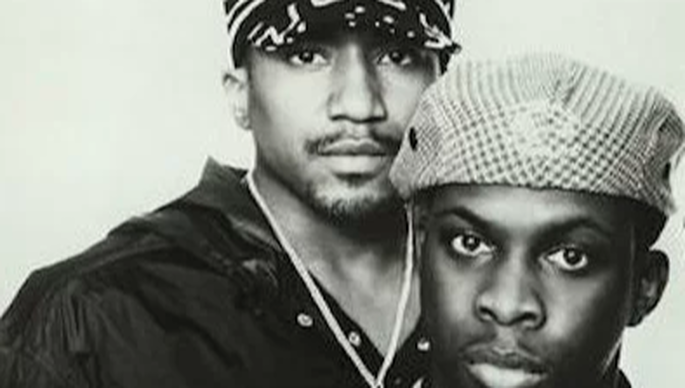


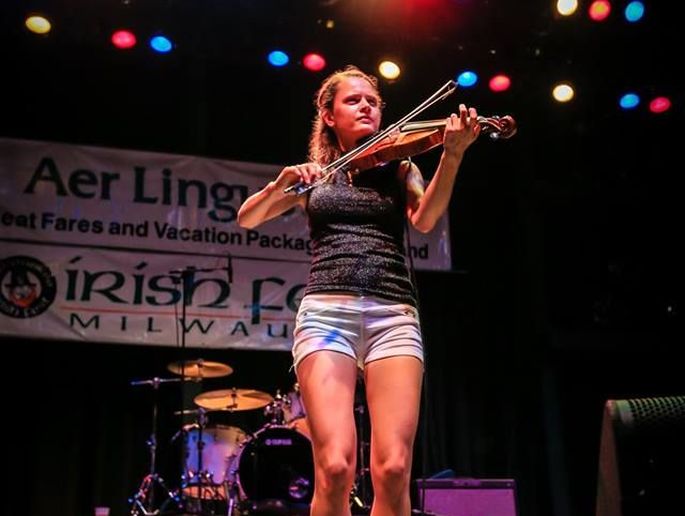
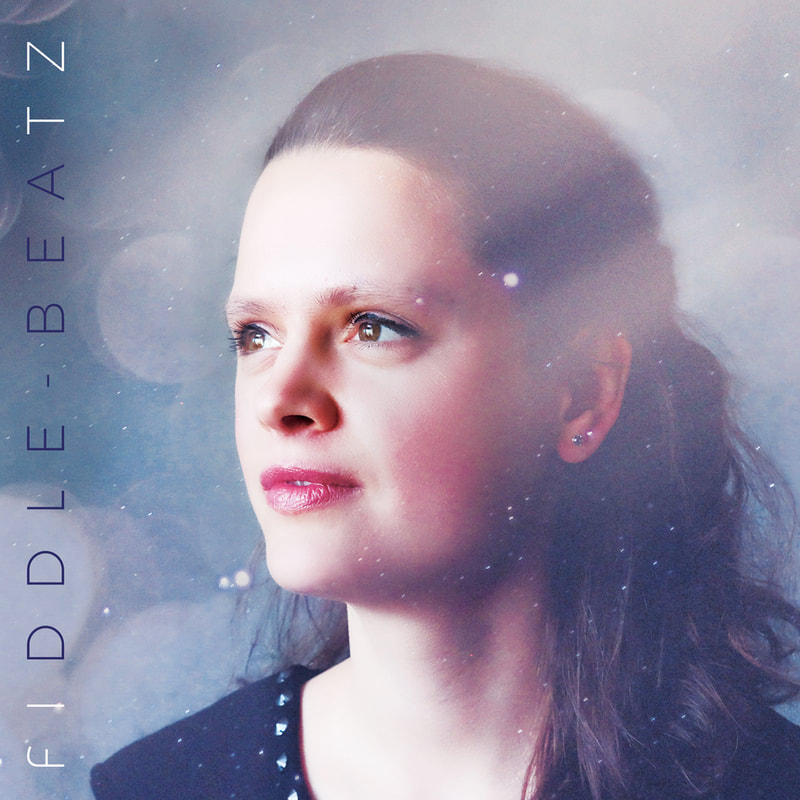
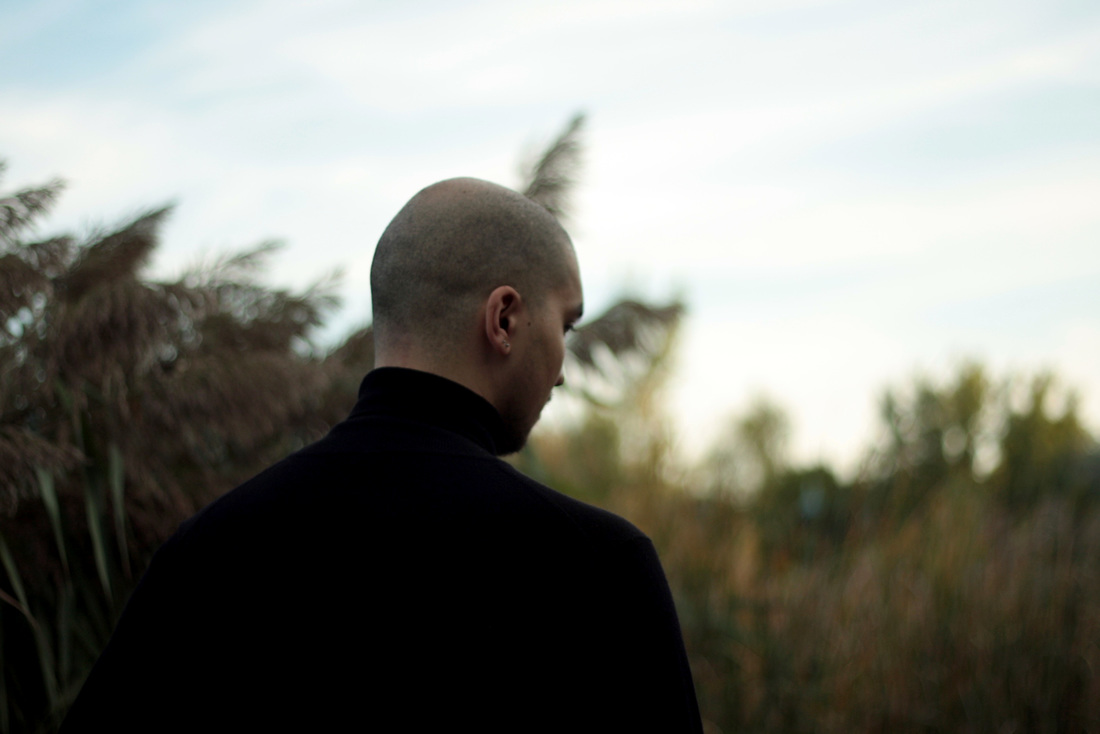
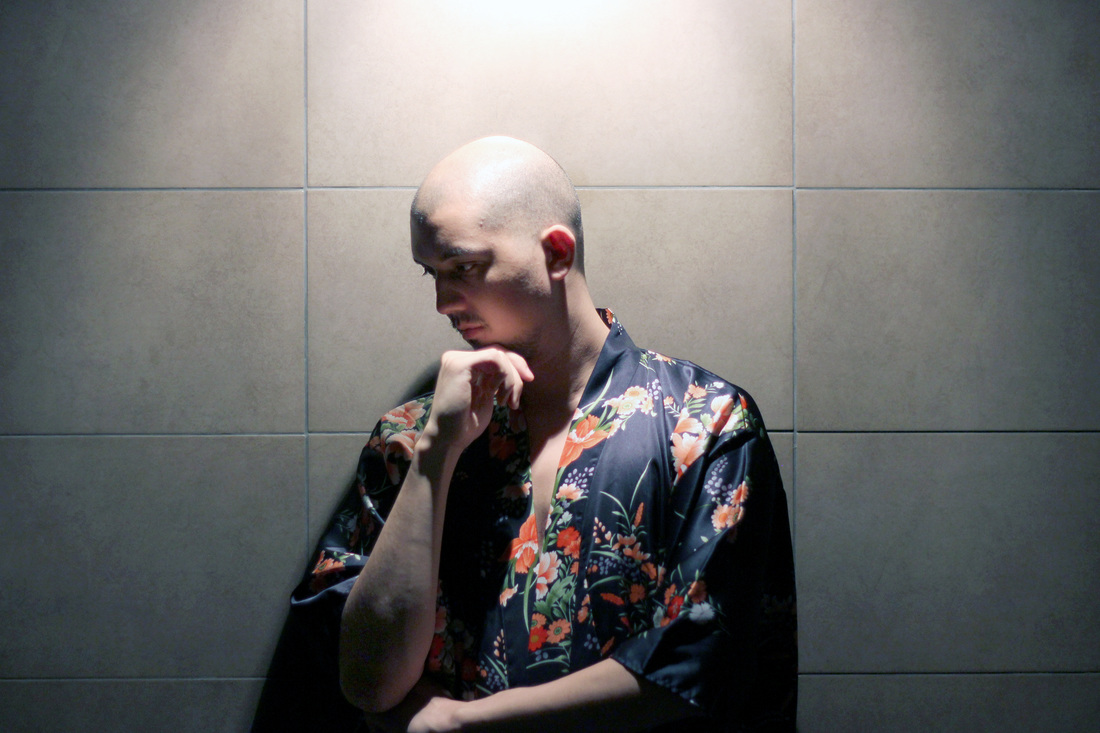
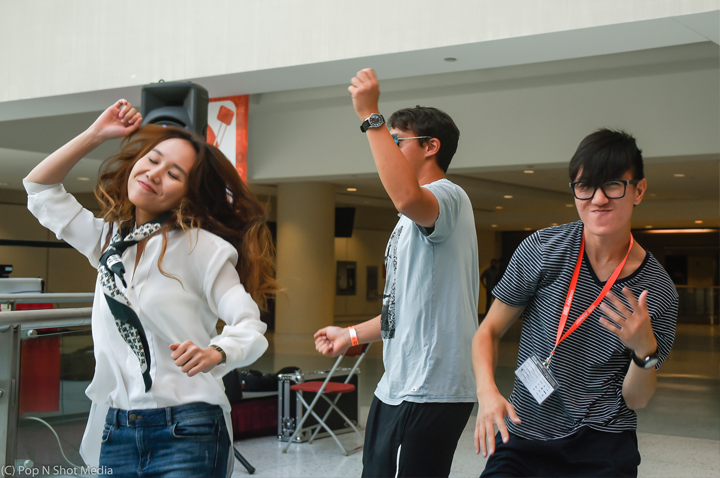
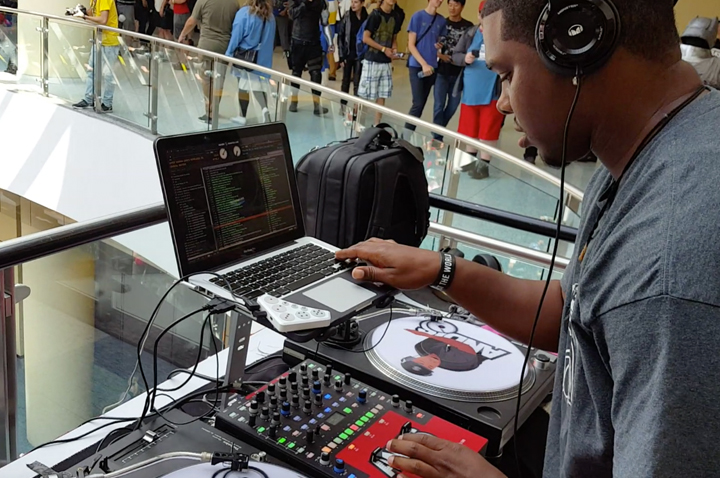
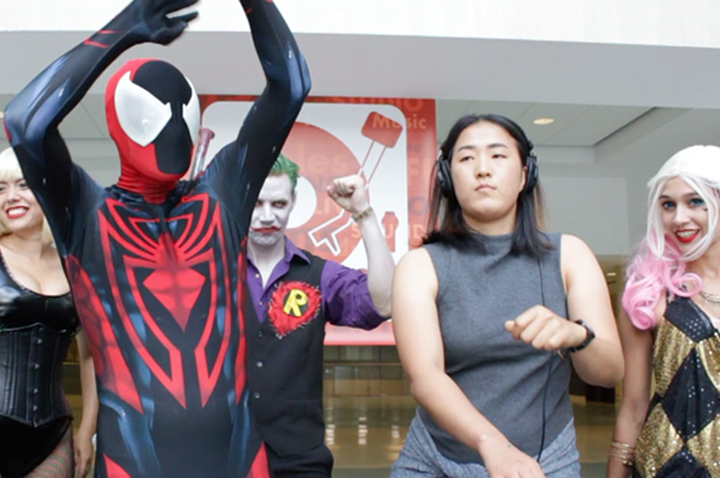
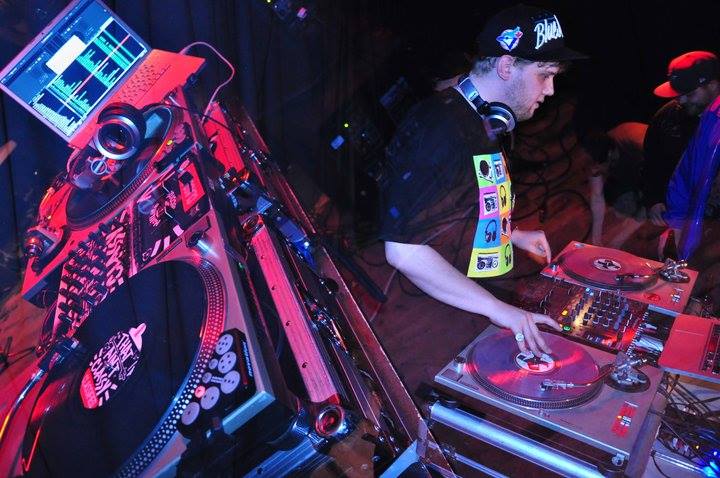
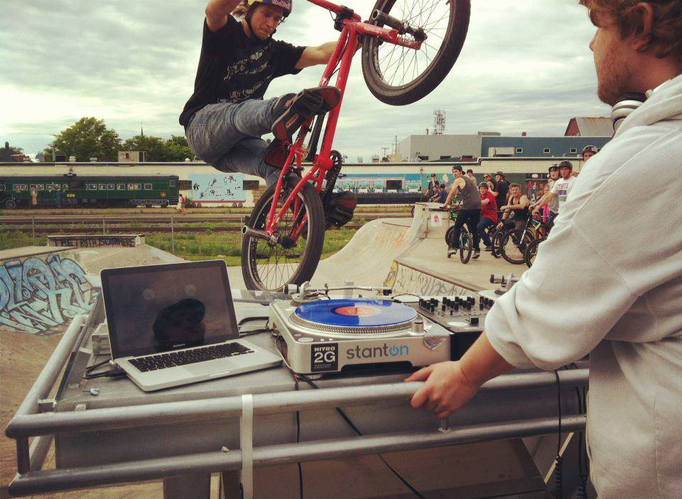
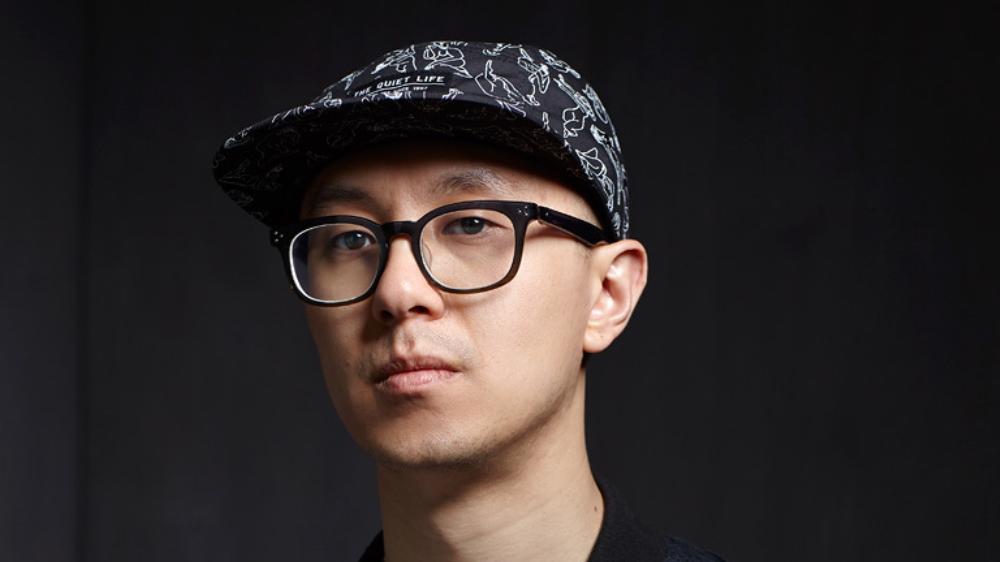
 RSS Feed
RSS Feed
